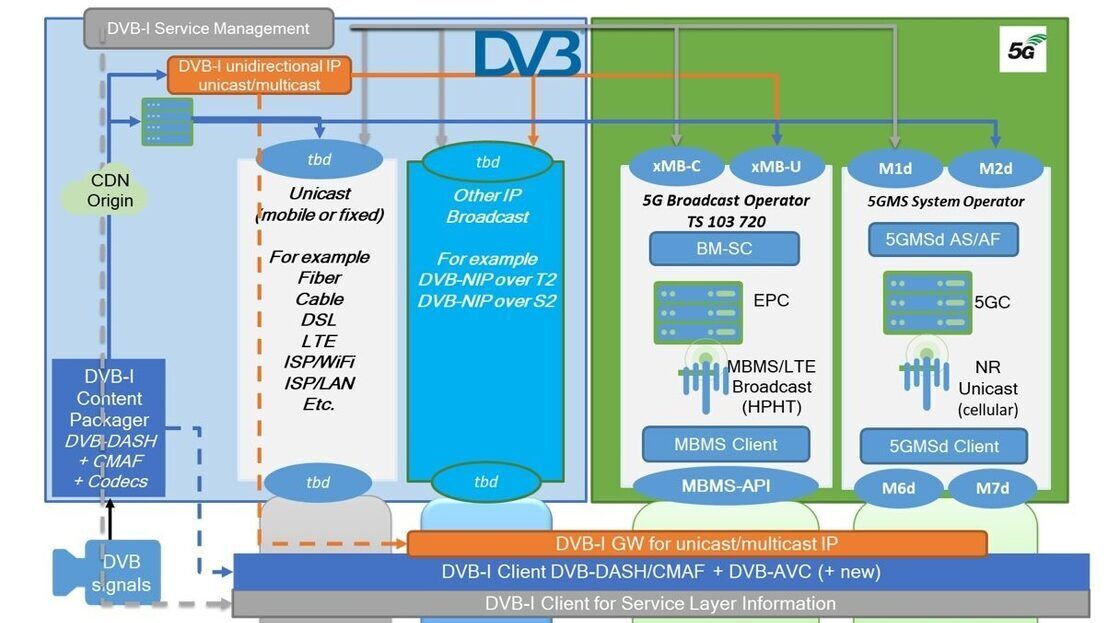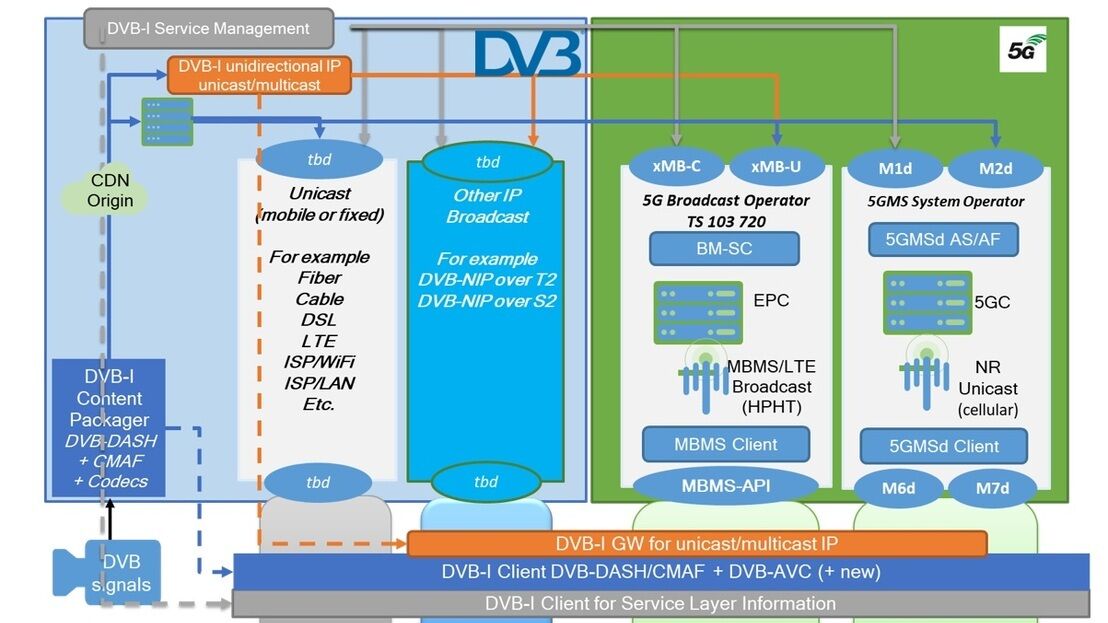In this paper, we analyze how 5G Broadcast can be introduced and deployed while coexisting in the same UHF channel with several other legacy broadcast radio technologies, including ATSC 3.0, DVB-T2 and ISDB-T
5G Broadcast offers broadcast network operators the possibility of reaching mobile devices directly, without requiring additional hardware in smartphones. 5G Broadcast enables delivery of services such as linear TV, live content offload, or emergency messages to the general population while minimizing the hardware impact and the cost to the end customers.
When introducing a new broadcast standard, factors such as spectrum scarcity, the need to support legacy receivers, and regulatory constraints are of significant interest in non-greenfield markets. Due to these issues, in some cases it may not be desirable or feasible to vacate one entire broadcast UHF channel to deploy 5G Broadcast. Instead, a transition approach to refarming may be preferred, where the available bandwidth is flexibly allocated to 5G Broadcast or a legacy standard with a granularity finer than a broadcast UHF channel.
In this paper, we analyze how...
Exclusive Content
This article is available with a Technical Paper Pass
Opportunities for emerging 5G and wifi 6E technology in modern wireless production
This paper examines the changing regulatory framework and the complex technical choices now available to broadcasters for modern wireless IP production.
Leveraging AI to reduce technical expertise in media production and optimise workflows
Tech Papers 2025: This paper presents a series of PoCs that leverage AI to streamline broadcasting gallery operations, facilitate remote collaboration and enhance media production workflows.
Automatic quality control of broadcast audio
Tech Papers 2025: This paper describes work undertaken as part of the AQUA project funded by InnovateUK to address shortfalls in automated audio QC processes with an automated software solution for both production and distribution of audio content on premises or in the cloud.
Demonstration of AI-based fancam production for the Kohaku Uta Gassen using 8K cameras and VVERTIGO post-production pipeline
Tech Papers 2025: This paper details a successful demonstration of an AI-based fancam production pipeline that uses 8K cameras and the VVERTIGO post-production system to automatically generate personalized video content for the Kohaku Uta Gassen.
EBU Neo - a sophisticated multilingual chatbot for a trusted news ecosystem exploration
Tech Papers 2025: The paper introduces NEO, a sophisticated multilingual chatbot designed to support a trusted news ecosystem.




